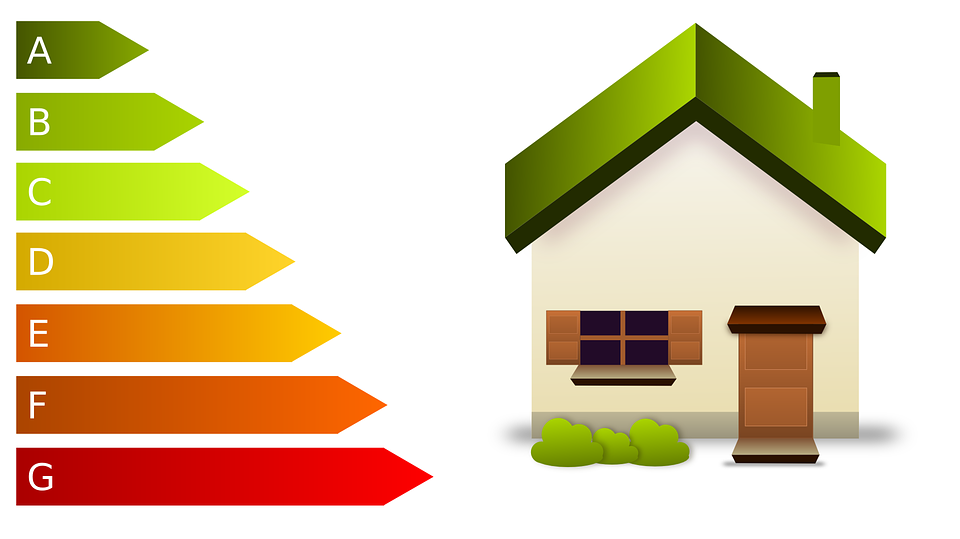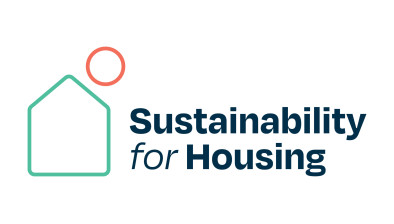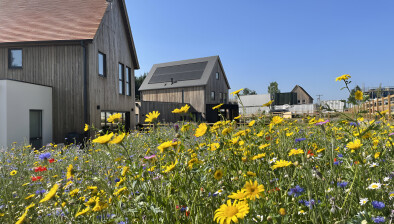Three quarters of housing association homes achieve EPC C+

Around 76% of housing association homes now meet EPC C or above, cementing the sector’s reputation as a leader in environmental, social and governance (ESG) performance, the latest Sustainability Reporting Standard (SRS) Annual Report, published by Sustainability for Housing (SfH) has revealed.
The milestone puts housing associations well ahead of the wider housing market, where just 48% of homes meet the same standard, according to the English Housing Survey. Leading performers like Bromford (89%), Orbit (85%), Aster (84%), and A2 Dominion (81%) exemplify the sector’s ongoing commitment to energy efficiency.
Produced in collaboration with Housemark, the report estimates that 100,000 social homes were upgraded to EPC C or better in 2023/24. At the current pace, the sector could reach full compliance in the next 13 to 14 years.
With 170 adopters now reporting to the SRS, including 132 housing providers managing nearly 2.4 million homes, and 38 funders, 2024 marks a turning point in ESG transparency and accountability.
According to an SfH survey:
- 80% of funders believe SRS reporting has improved housing providers’ ESG performance.
- Over 40% of housing providers say the SRS has led to a cultural or strategic shift within their organisations.
- 82% of reports were formally reviewed by Boards or Audit & Risk Committees.
Other key highlights from the 2024 report include:
- 99.7% of the 35,800 new homes built in 2023/24 achieved EPC C or higher.
- The share of EPC A-rated homes rose from 2.1% in 2022 to 9.5% in 2024.
- Rents remain affordable, averaging 59% of private sector rates and 72% of the Local Housing Allowance.
- 37 providers reported on damp and mould, with 86,670 homes affected—7% of their stock on average.
- The average CEO-to-median worker pay ratio stands at 5.9:1, favourable compared to FTSE 100 firms.
- The gender pay gap for housing providers is 9%, slightly above the UK average of 7%.
Piers Williamson, chair of SfH, said: “This year’s report demonstrates that despite all the political noise and suggestions of businesses rowing back on sustainability and social responsibility, the social housing sector remains committed to an environmentally, socially and economically sustainable future.
“It’s also somewhat of a ‘coming of age’ for ESG in housing and for the SRS, as this year moves ESG reporting from a snapshot of data to a series that enables analysis of trend data across a number of SRS criteria, which in turn enables a whole range of stakeholders to see progress, performance and outcomes in a consistent and comparable way.
“We know there are multiple challenges and financial pressures bearing down on housing associations and their residents – but we also know that sustainability is about the wellbeing of people living in social housing, as much as it is about the climate emergency.”
Mr Williamson added: “Overall, the SRS enables housing providers – and its stakeholders –to assess ESG progress and performance in a way that few other sector or industries do. It is also promoting a granularity, consistency and comparability of reporting and disclosure that didn’t exist previously in this sector – so we’d encourage all HAs out there to stay the course and continue to tell your story in this evidence-based way.”
Andrew Jackson, director of consultancy and partnerships at Housemark, said: “We were proud to partner with Sustainability for Housing to support the production of this year’s SRS report. The insights from our analysis offer a clear picture of where the sector is making progress and where challenges remain. We’re also developing a dedicated ESG benchmarking portal to help housing providers adopting the standard compare performance, track progress and make more informed, evidence-based decisions. At a time when transparency, consistency and credibility matter more than ever, this work provides a strong foundation for ESG reporting in social housing.
“Our partnership with SfH is focused on strengthening ESG data collection, validation and reporting across the sector. As a leading provider of data insight and benchmarking, we’re proud to be playing a central role in developing the infrastructure and tools that will underpin more consistent and credible ESG reporting in the years ahead.”
Elizabeth Froude, chief executive of Platform Housing, said: “Platform was an early adopter of the SRS reporting standard, because we believed it was a part of starting our journey on sustainability.
“It has kept us honest with ourselves about what we planned to do and achieved in sustainability territory and has allowed us to have evidence and credible discussions with investors.
“It is so good to see that we now have so many more organisations who have joined us on the journey, and this report allows us to share a good news story about the progress we have achieved as a sector, despite all the headwinds we have encountered.”
Ian McDermott, chief executive of Peabody and chair of the G15 London housing associations, said: “For Peabody, sustainability is an ongoing responsibility—one that requires us to act as careful stewards of the homes, places and communities we support. The decisions we make today serves current residents but also future generations, with a long-term approach guiding how we plan, invest and deliver services.
“Transparency and accountability are central to that responsibility. We’ve been part of the Sustainability Reporting Standard (SRS) from the beginning because we believe that a consistent, sector-wide approach to ESG reporting helps us all do better.
“We’ve now published four reports using the SRS, and each one has helped us reflect on our progress, identify areas for improvement and focus our efforts where they can have the greatest impact. We continue to invest in improving the quality and scope of our data, because better insights lead to better decisions. The SRS remains an essential tool in helping us—and the sector—build a more sustainable future.”
David Cleary, managing director & head of housing, Lloyds Banking Group and SfH board member, said: “Lloyds Banking Group is proud to support the comprehensive analysis presented in the SfH Annual Report. The year-on-year increase in housing associations adopting and proactively using the reporting standard confirms its relevance and unique position in the world of ESG.
“Transparency and robust performance reporting are crucial in maintaining funder confidence and attracting investment, especially amidst ongoing financial pressures within the sector. Understanding the transition to net zero, alongside social impact and great governance, is essential for housing associations and their funders and the new partnership with Housemark provides further support. It is a welcome development from a funder’s perspective.”
Sinead Lennon, investment stewardship manager at Pension Insurance Corporation, said: “Sustainability reporting is critical for investors in the social housing sector. It helps provide transparency and comparability as well as highlighting sustainability-related risks useful in decision making. As founding members of the SRS, PIC will continue to promote and support robust sustainability practices across the industry.”
Will Jeffwitz, head of policy at the National Housing Federation, said: “This report shows that housing associations are leading the way on energy efficient and sustainable housing, despite facing significant financial pressures in recent years.
“The sector’s commitment to decarbonisation and reaching net zero is clear, with housing associations far ahead of other tenures in terms of retrofitting their homes to EPC C and above. This commitment is not just about protecting the environment, but also about providing residents with homes that are warm, affordable and safe.
“The Sustainability Reporting Standard is an important tool for housing associations to demonstrate their ESG credentials to investors and it’s clear that adopters are seeing the benefits. We look forward to continuing to work together on our shared goals for sustainable housing.”
Carolyn Lochhead, director of external affairs, Scottish Federation of Housing Associations, said: “It’s fantastic to see the number of Scottish adopters of the Sustainability Reporting Standard continue to grow, and this report highlights the continued importance of transparent ESG performance reporting for SFHA members.
“We know that Scotland’s housing associations and co-operatives are committed to creating sustainable, resilient communities, and the SRS provides a valuable framework to support that ambition. We look forward to continuing our collaboration with Sustainability for Housing as our members make further progress towards meeting their environmental, social and governance goals.”
















